Disability advocates on H Street are calling out many new businesses for their inaccessible entrances.
The University Legal Services, an advocacy agency that promotes and protects human rights for people with disabilities, reminded businesses to remove one-step or half-step entryways throughout the corridor. University Legal Services posted a list of 13 businesses, including Maketto and Stable restaurants, and others like Georgetown Valet and Insomnia Cookies for violating the Americans with Disabilities Act.
According to a report by University Legal Services, in 2013, 11% of residents in the District reported having a disability. In addition to these residents, approximately 4 million tourists visit D.C. each year and many get turned away from restaurants and businesses due to inaccessibility.
ADA Title III ensures that people with disabilities have equal accommodations for all public businesses. Equal public accommodations mean that businesses must have wide door entryways and bathrooms that do not have barriers and with grab bars available.
Businesses who do not comply with these regulations can potentially face lawsuits under the ADA.
However, Adam Mathews, front of the house coordinator of Maketto, is unsure as to why the restaurant is on University Legal Services’ list.
Maketto’s restaurant on H Street NE is a communal marketplace with a men’s retail store in the front. Serving Taiwanese and Cambodian food, the restaurant also includes four dining rooms, two bars, kitchen space, and cafe.
Mathews has been the frontman of Maketto since 2015 and said the restaurant is wheelchair compliant. He said one of the entryways is accessible for those who can’t enter through the second entryway due to the steps.
However University Legal Services representative, Peter Stephan, said that based on their research that is not always the case.
“Our survey found Maketto’s accessible entrance door locked. Maketto’s other entrance door was open but had one step up to the door and one step down inside, making it impossible for wheelchair riders to enter,” Stephan said.
According to Mathews, a person with a wheelchair could be accommodated at a dining table or the bar and, due to the upstairs cafe being inaccessible, someone can bring their order down to them.
Behind the main dining room is an outdoor area that connects to the kitchen space.
“We built this area to be ADA compliant. We have a ramp that leads directly into our kitchen,” Mathews said. “You can go from one end to the other of this restaurant with a wheelchair or any type of inaccessibility.”
Stable DC is a Swiss-American fare restaurant that has three steps in the front entryway and was also included on University Legal Service’s list.
Stable’s General Manager Silvan Kraemer said the restaurant technically does not have to comply with ADA’s policies due to it being in a story building. However, they do offer an alternative entryway for those who can not enter through the front.
“We get people in with wheelchairs at the back of the restaurant,” Kraemer said.
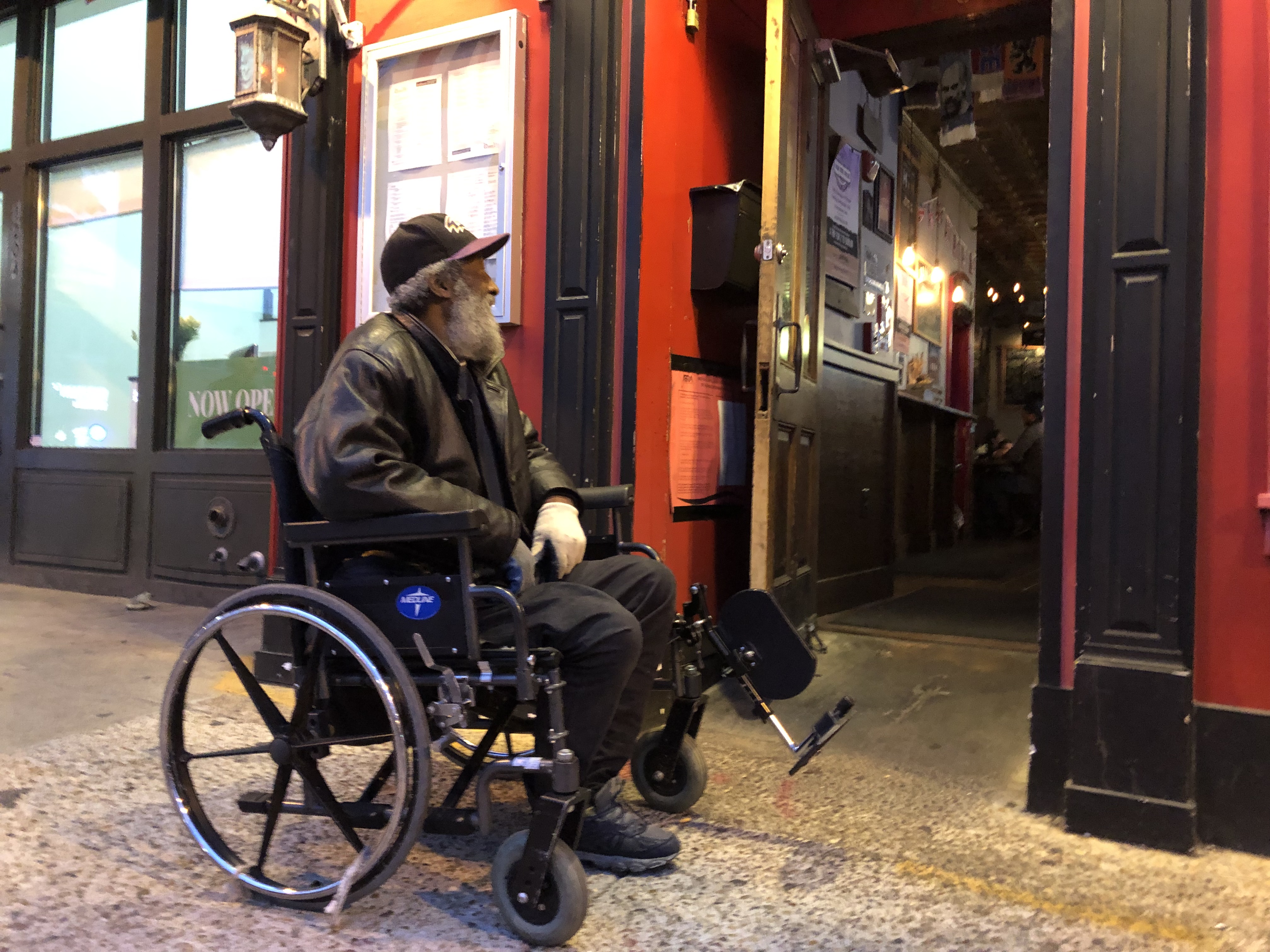
Stephan disagrees with Kraemar’s statement.
“The ADA was passed almost 30 years ago and there are no expectations for businesses open to the public which can be made accessible. Stable’s entrance could readily be made accessible with three steps at its front entrance,” he said.
Getting into establishments, like Stable, in the corridor has been a battle for 65-year-old resident Jerry M. Wheeler. He has to pick and choose where he goes because of inaccessible entryways.
“If I can’t get in, I don’t go in. I just go around. I’ll go somewhere else where someone will give me some help,” Wheeler said.
He said because of inaccessibility in these establishments, a lot of places lose business.
“If you remove the humps out the way, they will get more business out the handicapped. It’s real simple but people make it hard.”

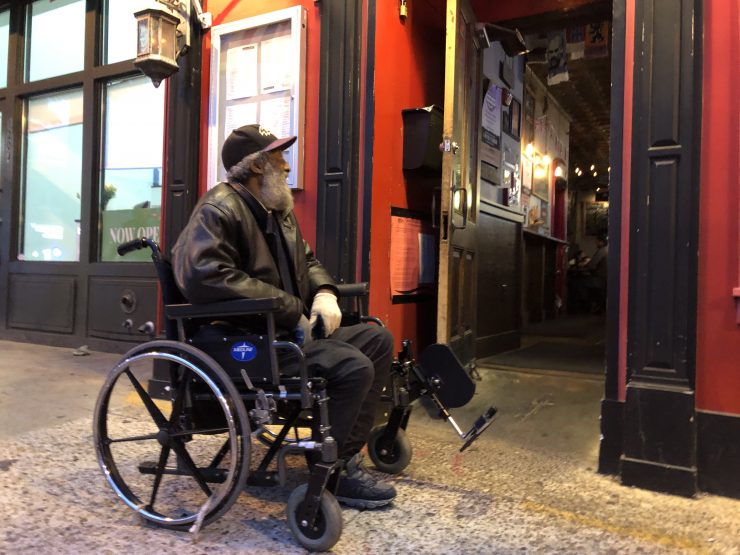
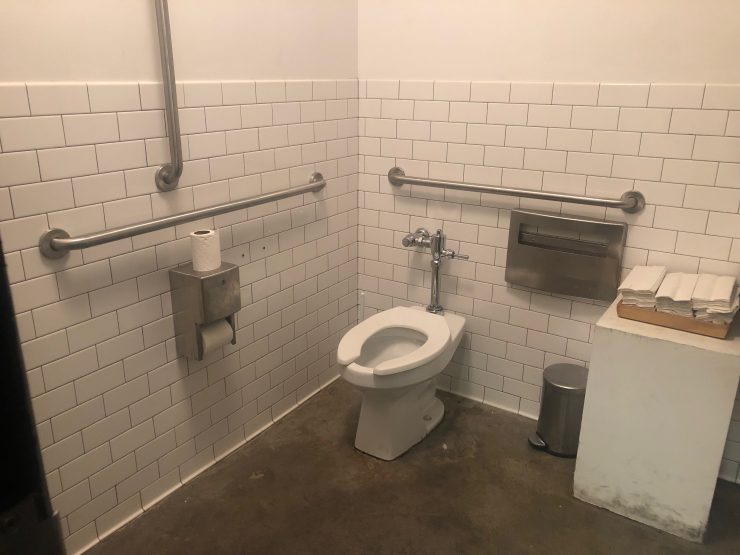
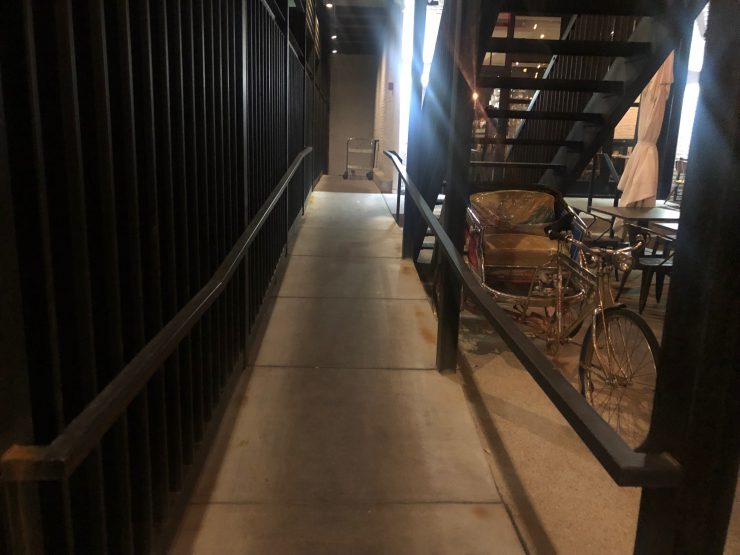
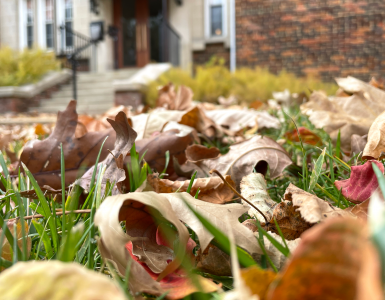












Add comment